Milk of Paradise: A History of Opium
By: Lucy Inglis
-
Rs 930.75
- Rs 1,095.00
- 15%
You save Rs 164.25.
Due to constant currency fluctuation, prices are subject to change with or without notice.
Lucy Inglis has done a wonderful job bringing together a wide range of sources to tell the history of the most exciting and dangerous plants in the world. Telling the story of opium tells us much about our faults and foibles as humans – our willingness to experiment; our ability to become addicts; our pursuit of money. This book tells us more than about opium; it tells us about ourselves.' - Peter Frankopan, author of The Silk Roads ‘The only thing that is good is poppies. They are gold.’ Poppy tears, opium, heroin, fentanyl: humankind has been in thrall to the ‘Milk of Paradise’ for millennia. The latex of papaver somniferum is a bringer of sleep, of pleasurable lethargy, of relief from pain – and hugely addictive. A commodity without rival, it is renewable, easy to extract, transport and refine, and subject to an insatiable global demand. No other substance in the world is as simple to produce or as profitable. It is the basis of a gargantuan industry built upon a shady underworld, but ultimately it is a farm-gate material that lives many lives before it reaches the branded blister packet, the intravenous drip or the scorched and filthy spoon. Many of us will end our lives dependent on it. In Milk of Paradise, acclaimed cultural historian Lucy Inglis takes readers on an epic journey from ancient Mesopotamia to modern America and Afghanistan, from Sanskrit to pop, from poppy tears to smack, from morphine to today’s synthetic opiates. It is a tale of addiction, trade, crime, sex, war, literature, medicine and, above all, money. And, as this ambitious, wide-ranging and compelling account vividly shows, the history of opium is our history and it speaks to us of who we are.
Lucy Inglis has done a wonderful job bringing together a wide range of sources to tell the history of the most exciting and dangerous plants in the world. Telling the story of opium tells us much about our faults and foibles as humans – our willingness to experiment; our ability to become addicts; our pursuit of money. This book tells us more than about opium; it tells us about ourselves.' - Peter Frankopan, author of The Silk Roads ‘The only thing that is good is poppies. They are gold.’ Poppy tears, opium, heroin, fentanyl: humankind has been in thrall to the ‘Milk of Paradise’ for millennia. The latex of papaver somniferum is a bringer of sleep, of pleasurable lethargy, of relief from pain – and hugely addictive. A commodity without rival, it is renewable, easy to extract, transport and refine, and subject to an insatiable global demand. No other substance in the world is as simple to produce or as profitable. It is the basis of a gargantuan industry built upon a shady underworld, but ultimately it is a farm-gate material that lives many lives before it reaches the branded blister packet, the intravenous drip or the scorched and filthy spoon. Many of us will end our lives dependent on it. In Milk of Paradise, acclaimed cultural historian Lucy Inglis takes readers on an epic journey from ancient Mesopotamia to modern America and Afghanistan, from Sanskrit to pop, from poppy tears to smack, from morphine to today’s synthetic opiates. It is a tale of addiction, trade, crime, sex, war, literature, medicine and, above all, money. And, as this ambitious, wide-ranging and compelling account vividly shows, the history of opium is our history and it speaks to us of who we are.
Zubin Mehta: A Musical Journey (An Authorized Biography)
By: VOID - Bakhtiar K. Dadabhoy
Rs 892.50 Rs 1,050.00 Ex Tax :Rs 892.50
TRYST WITH PERFIDY The Deep State of Pakistan
By: Kamal Davar
Rs 1,015.75 Rs 1,195.00 Ex Tax :Rs 1,015.75
This Poison Heart: From the author of the TikTok sensation Cinderella is Dead
By: Kalynn Bayron
Rs 1,270.75 Rs 1,495.00 Ex Tax :Rs 1,270.75
The Origins of Political Order From Prehuman Times to the French RevolutioN
By: Francis Fukuyama
Rs 4,045.50 Rs 4,495.00 Ex Tax :Rs 4,045.50
TRYST WITH PERFIDY The Deep State of Pakistan
By: Kamal Davar
Rs 1,015.75 Rs 1,195.00 Ex Tax :Rs 1,015.75
This Poison Heart: From the author of the TikTok sensation Cinderella is Dead
By: Kalynn Bayron
Rs 1,270.75 Rs 1,495.00 Ex Tax :Rs 1,270.75
No recently viewed books available at the moment.
Zubin Mehta: A Musical Journey (An Authorized Biography)
By: VOID - Bakhtiar K. Dadabhoy
Rs 892.50 Rs 1,050.00 Ex Tax :Rs 892.50
TRYST WITH PERFIDY The Deep State of Pakistan
By: Kamal Davar
Rs 1,015.75 Rs 1,195.00 Ex Tax :Rs 1,015.75
This Poison Heart: From the author of the TikTok sensation Cinderella is Dead
By: Kalynn Bayron
Rs 1,270.75 Rs 1,495.00 Ex Tax :Rs 1,270.75












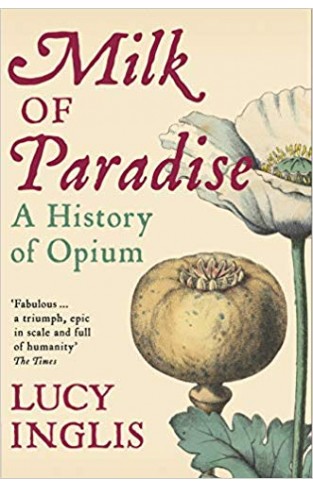
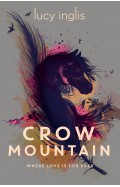
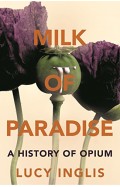
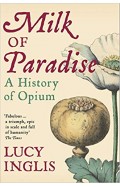
-120x187.jpg?q6)





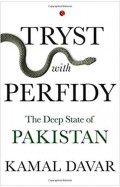
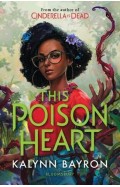
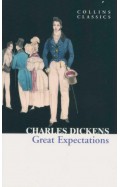




-120x187.jpg?q6)


-120x187.jpg?q6)